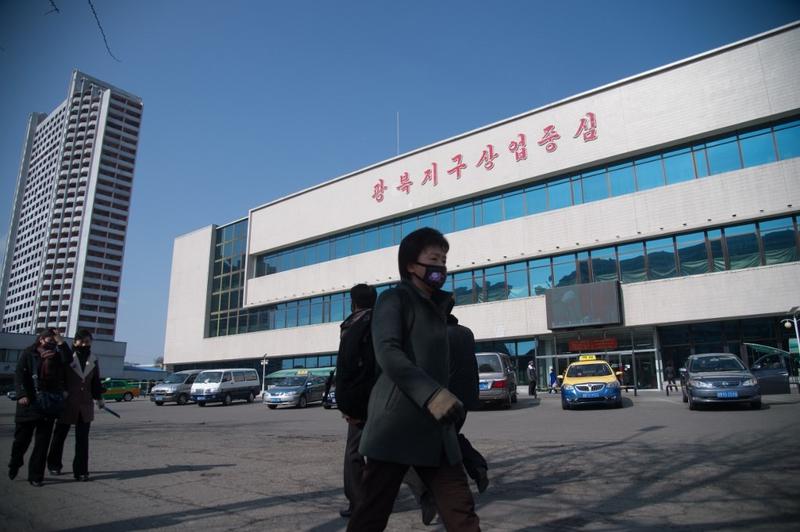 People wearing face masks walk down Kwangbok street in Pyongyang on February 26, 2020. (KIM WON-JIN / AFP)
People wearing face masks walk down Kwangbok street in Pyongyang on February 26, 2020. (KIM WON-JIN / AFP)
GENEVA - A senior Chinese diplomat has said here that to continue dialogue on the Korean Peninsula situation is in the interest of all the parties concerned and a general expectation of the international community.
Liu Hua, special representative for human rights affairs of China's Foreign Ministry, made the remarks at the ongoing 43rd session of the UN Human Rights Council on Monday.
The unilateral sanctions against the Democratic People's Republic of Korea (DPRK) have seriously impacted the human rights of the people there and should be lifted as soon as possible, Liu Hua, special representative for human rights affairs of China's Foreign Ministry said
China has remained committed to the denuclearization of the peninsula, the maintenance of its peace and stability, and the settlement of the peninsula issue through dialogue and consultation, making unremitting efforts to this end, the diplomat said.
READ MORE: Moon vows to build peace community on Korean Peninsula
The unilateral sanctions against the Democratic People's Republic of Korea (DPRK) have seriously impacted the human rights of the people there and should be lifted as soon as possible, she said.
"We hope that the parties concerned will stay committed to dialogue and consultation, actively seek ways to break the deadlock, and promote the political settlement of the Peninsula issue," Liu said.
"The international community should pay attention to the legitimate concerns of the DPRK in terms of security and development, and in accordance with relevant Security Council resolutions, ease sanctions against the DPRK in due time," she added.
ALSO READ: China, DPRK foreign ministers meet on ties, Korean Peninsula
China always advocates that countries should address human right issues through constructive dialogue and cooperation, and stands against politicization, double standards, partial and confrontational practices, as well as the practices of "naming and shaming" and publicly pressuring.


